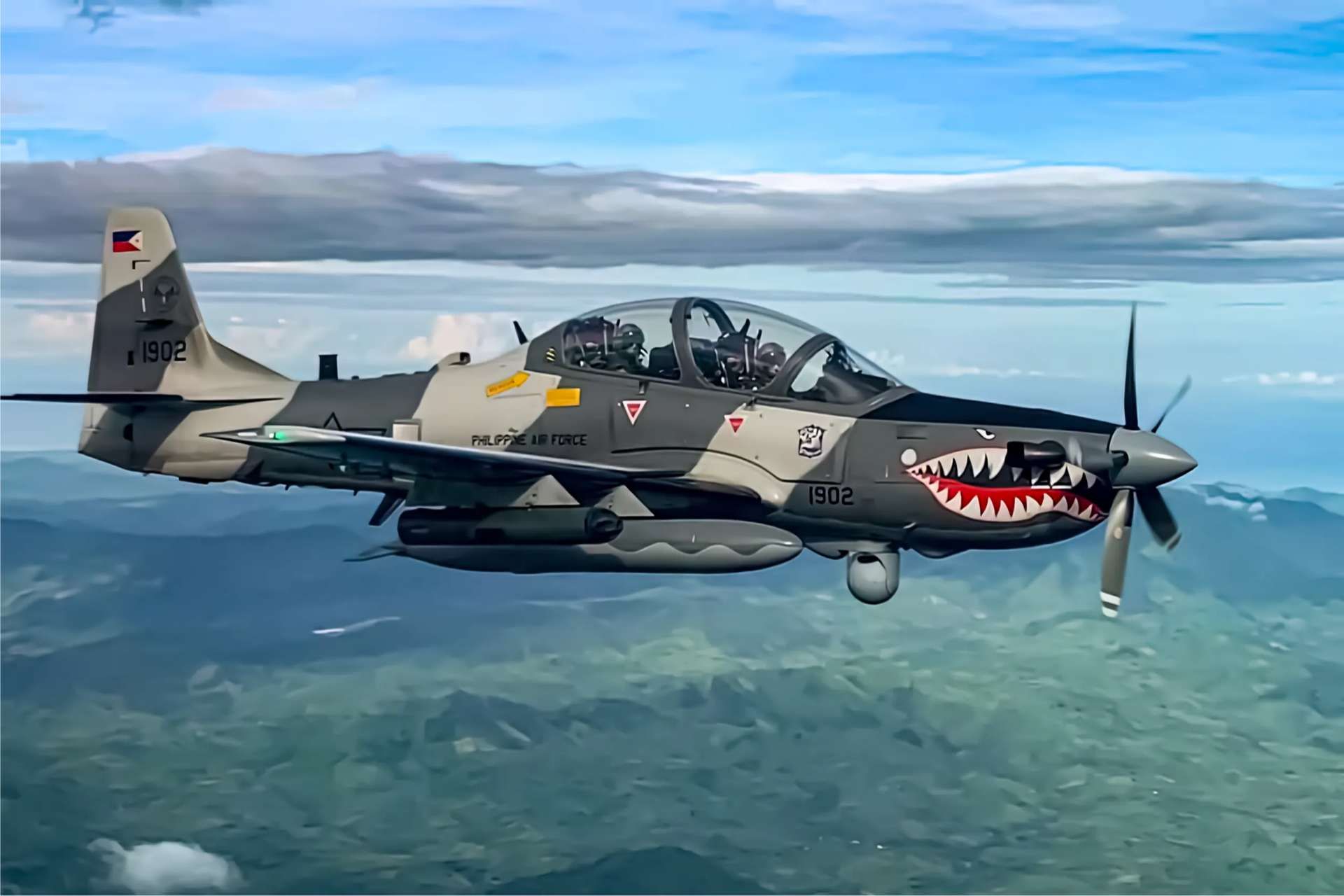Breaking News
Portugal Announces Upcoming Acquisition of Super Tucano A-29N Aircraft.
The Portuguese Defense Minister announced during a parliamentary hearing that the acquisition of the A-29N Super Tucano will soon be legally approved. This statement marks a significant step in strengthening Portugal's close air support capabilities. The current legislative framework, through the Military Programming Law (LPM), has allocated a budget of 180.5 million euros for the acquisition of close air support (CAS) aircraft.
Follow Army Recognition on Google News at this link

A Super Tucano A-29B Philippine aircraft. (Picture source: Philippine Air Forces)
Portugal's choice for the Super Tucano is partly motivated by Embraer's presence in the country. Embraer has maintenance facilities in Portugal through its subsidiary OGMA, facilitating logistical support and technological updates for the aircraft. Additionally, Portugal has a long-standing relationship with Brazil in military cooperation, illustrated by exchange and training programs.
The A-29N version of the Super Tucano is specially configured to meet the requirements of NATO countries, making it particularly suitable for the needs of the Portuguese Air Force (FAP). In addition to its combat capabilities, the A-29N is also used as an advanced trainer aircraft, offering a versatile platform for fighter pilot training.
The Super Tucano A-29N, manufactured by Embraer, is a versatile aircraft designed to perform a multitude of missions, including light attack, armed reconnaissance, and tactical training. It stands out for its robust design, capable of withstanding the most hostile environments while minimizing maintenance needs. Thanks to an extremely durable platform, it can operate from unprepared runways and offers high survivability with active and passive protection features.
The cockpit of the A-29N is designed to reduce pilot workload and maximize situational awareness, with an advanced human-machine interface, superior ergonomics, and optimal accessibility. The intuitive controls allow the pilot to focus on mission outcomes while benefiting from enhanced protection with an armored cockpit and engine compartment. The onboard systems include next-generation electro-optical/infrared sensors, an integrated laser designator for precise attacks, and secure tactical communication and navigation systems.
In terms of performance, the Super Tucano A-29N boasts a maximum speed of 320 knots, with an endurance of 3.4 hours on internal fuel, extending to 5.2 hours with external tanks and EO/IR sensors. It can climb at a rate of 3,240 feet per minute, with a service ceiling of 35,000 feet. Its ability to take off and land on short distances (900 meters for takeoff and 860 meters for landing) makes it a major asset for operations from forward bases.
The A-29N's store management system (SMS) is fully integrated, managing five NATO-standard stations and two internal .50 caliber machine guns. This configuration allows for great flexibility in armament, offering over 160 configuration possibilities to meet specific mission needs. The Super Tucano is also equipped with a sophisticated electronic protection system, including automated countermeasures, radar and missile warning systems, and zero-zero ejection seats for crew safety in emergencies.
The A-29N is also recognized for its integrated logistics solution, providing comprehensive support from Embraer. This includes maintenance services, spare parts management, and a 24/7 customer contact center to ensure maximum operational availability of the fleet. Embraer also offers a complete range of ground training devices and stations, reducing the flight hours needed for pilot training, accelerating the learning process, and optimizing operational costs.
The acquisition of these aircraft will not only strengthen Portugal's defense capabilities but also support its peacekeeping missions, particularly in Africa where the country is actively engaged. The FAP has already planned to deploy the Super Tucanos within the 103rd Squadron "Caracóis," thus resuming its pilot training operations that had been suspended after the Alpha Jet's withdrawal in 2018.


























